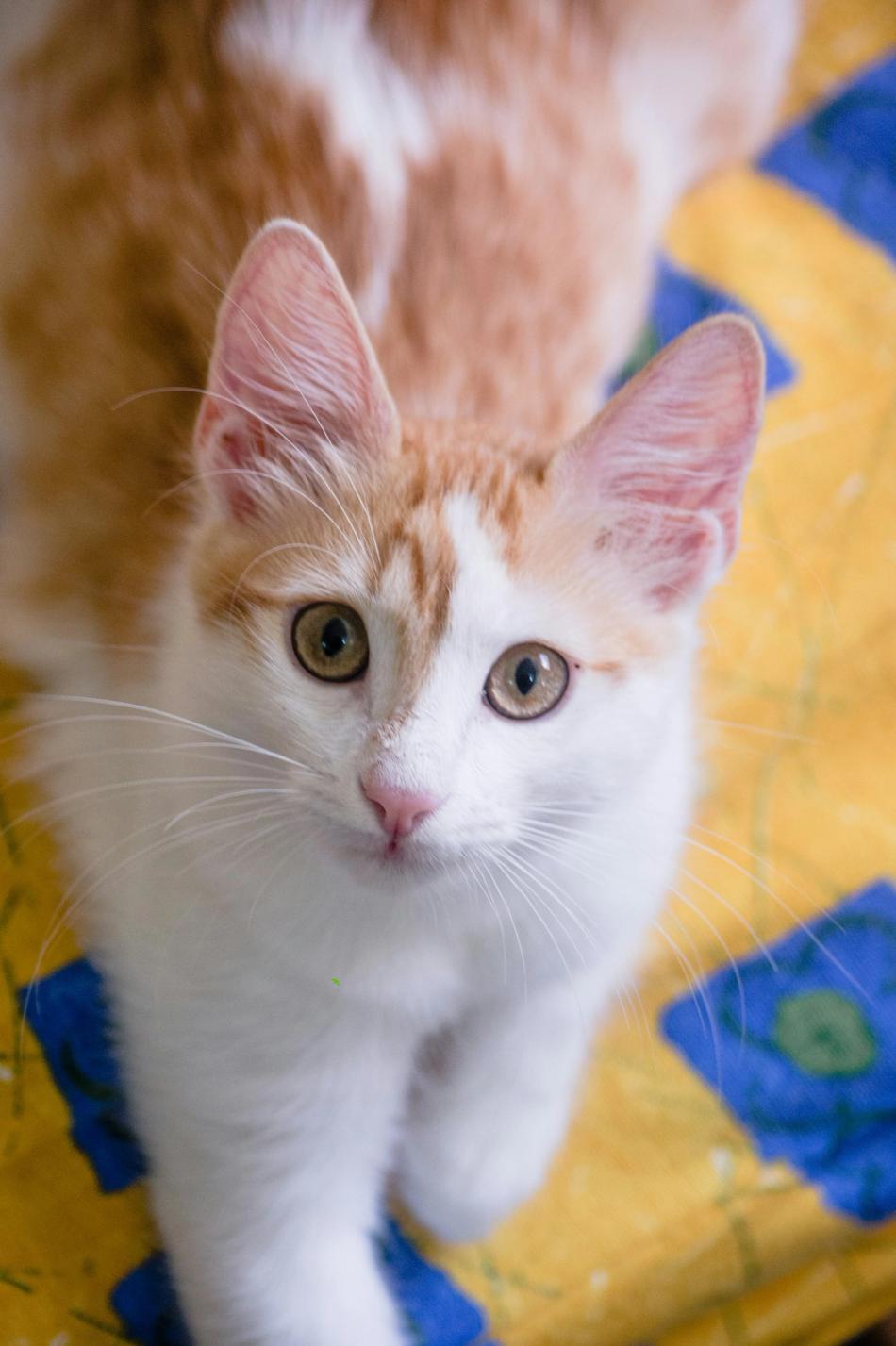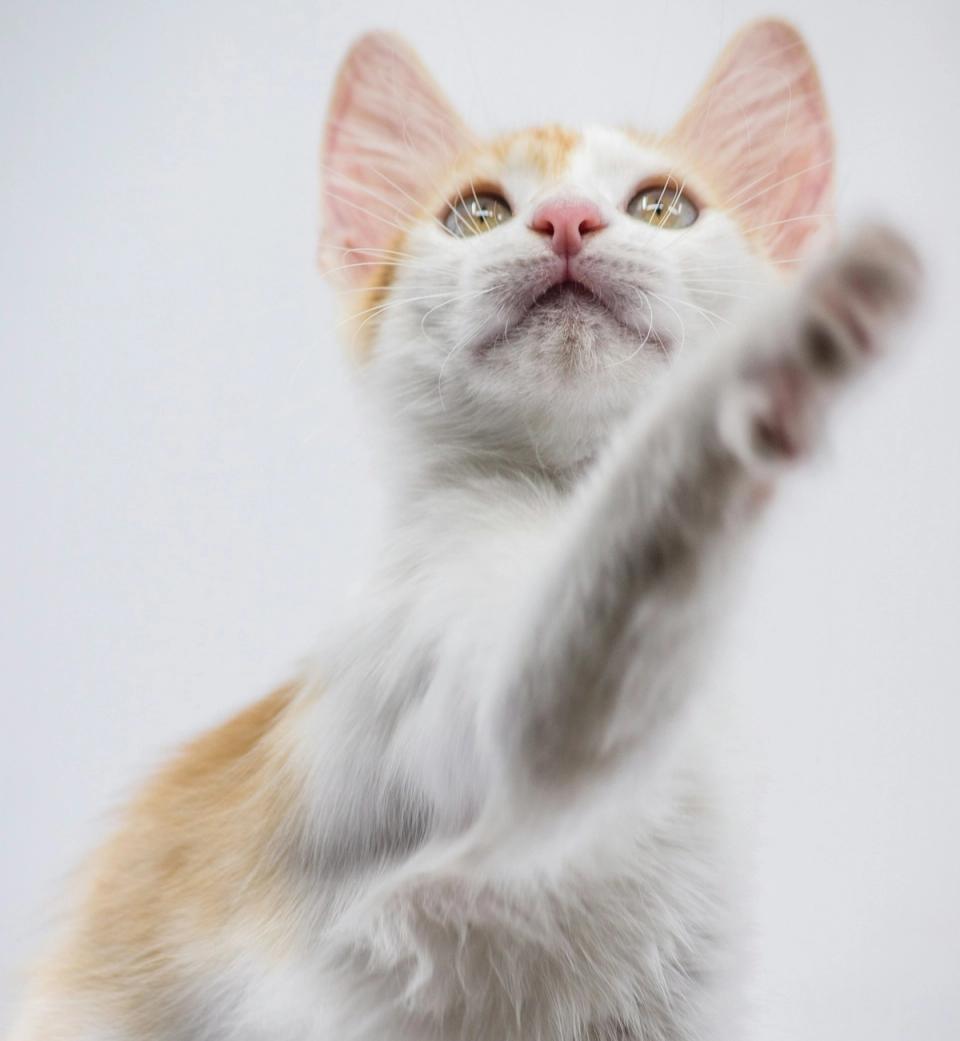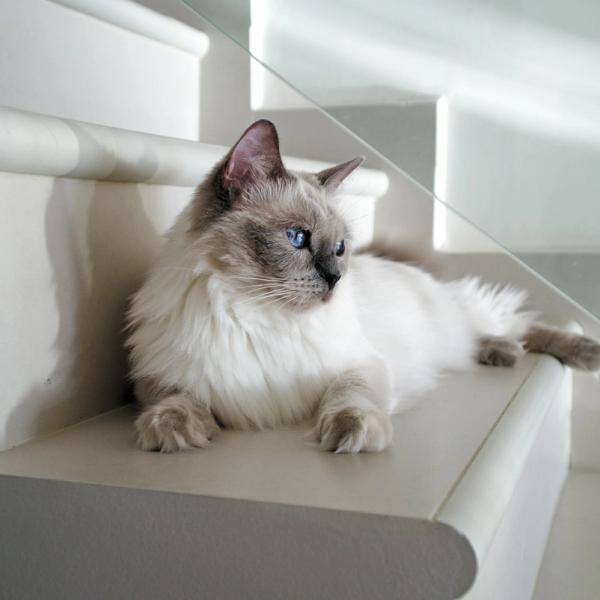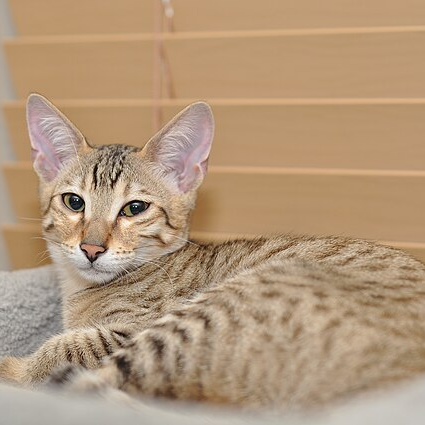
July 25, 2024
PetSafe® Expert
PetSafe® Guest
Turkish Van Cat Breed Overview
Turkish Van cats are distinguished by their affinity for water, earning the nickname "swimming cat." As their name says, the breed originated in Turkey and is known for its large, muscular build and distinctive coat pattern—most commonly white with colored markings on the head and tail. Turkish Vans are known for their playful nature and strong bonds with their owners, making them ideal pets for active households.
History
The Turkish Van cat has a storied history that dates back several centuries to the Lake Van region of Turkey. This breed is one of the oldest known cat breeds, with their presence in the region documented as far back as the medieval period. The Turkish Van was not just a pet but a part of local folklore, revered for its striking appearance and unusual affinity for water, which is rare among cats.
It was in the mid-20th century that the Turkish Van was formally recognized as a breed in Western countries. British travelers first brought these cats to Europe in the 1950s, captivated by their unique markings and swimming skills. The breed slowly gained popularity due to their friendly nature and distinctive look, leading to recognition by major cat registries.
Today, the Turkish Van is cherished worldwide, not only for their historical significance but also for its sociable temperament and adaptability to various environments.
Appearance

Credits: Mohamed-Fadel Lakhmi / Unsplash
The Turkish Van cat is most notable for their distinctive "Van pattern" coat, primarily white with colored markings confined to the head and tail. The coat is semi-long with a cashmere-like texture that’s water-resistant. These cats are large and muscular, with males typically weighing between 10 to 20 pounds and females slightly smaller.
Their eyes are particularly captivating, often amber or blue, and sometimes even one of each—known as heterochromia, adding to their striking appearance. Their overall build is robust, with strong legs that are great for jumping and climbing.
Temperament
The Turkish Van is renowned for its energetic and playful nature, making them a delightful companion in active homes. This breed thrives on interaction and forms strong bonds with their family members. They are known for their intelligence and curiosity, often finding clever ways to engage with their surroundings.
Despite their love for activity, Turkish Vans also appreciate spending time with their family and can be quite affectionate with their owners. They typically have a good temperament around children and are known to be patient, making them excellent family pets. However, they do retain a high level of independence and will find ways to entertain themselves when needed.
Their sociable nature means they don't do well in isolation, so they are best suited to environments where they can enjoy regular interaction, whether with humans or other pets. You can keep your Turkish Van occupied and satisfy their curiosity with our secure and versatile cat doors, perfect for indoor and outdoor access.
Behavior
Turkish Van cats are known for their unique behavioral traits that set them apart from many other breeds. As mentioned earlier, one of the most fascinating aspects of their behavior is their unusual affinity for water. Unlike most cats, Turkish Vans often seek out water to play in, making them exceptional swimmers. This love for water can be an exciting feature for families who enjoy interactive play with their pets.
Additionally, Turkish Vans are moderately vocal. They will communicate their needs and desires to their owners but are not overly loud or incessant with their meowing. This level of communication makes them responsive and communicative pets without being disruptive.
Their playful nature extends to their interaction with toys and puzzles. Keep your Turkish Van entertained and engaged with our exciting range of cat toys, including automated and treat-dispensing options, perfect for stimulating their intelligent and curious minds.
Furthermore, while Turkish Vans are independent, they also thrive on companionship and should not be left alone for extended periods. They do best in environments where they can interact frequently with their family members or have other pets to keep them company.
Diet
The Turkish Van cat requires a balanced diet to maintain health and energy levels. Like all cats, they are primarily carnivores, necessitating a diet high in protein. It's crucial to provide them with high-quality cat food that meets their nutritional needs, including both wet and dry food varieties.
Due to their active nature, Turkish Vans may require a slightly higher calorie intake than less active breeds, especially during their younger, more energetic years. However, monitoring food intake is important to prevent obesity, particularly as they age and potentially become less active.
Like all cats, access to fresh water and hydration is crucial for good health. A good way to encourage your Turkish Van to stay hydrated is with our cat fountains, which provide clean and fresh water to encourage drinking.
Regular veterinary check-ups can help tailor their diet to specific health needs, such as adjusting calorie intake or addressing potential dietary sensitivities specific to the breed.
Health
Turkish Van cats are generally known for their robust health and longevity, typically living between 12 to 17 years. However, like any breed, they are prone to certain health issues that potential owners should be aware of.
One common concern is hypertrophic cardiomyopathy (HCM), a heart condition often genetically inherited in cats. Regular veterinary screenings can help detect such conditions early, contributing to more effective management and a healthier life for your pet.
It's also essential to maintain a routine health check schedule that includes vaccinations, parasite control, and regular dental check-ups to prevent common issues like dental disease, which can affect overall health if left untreated.
Maintaining a healthy weight is crucial for preventing diabetes and joint issues, particularly as the Turkish Van ages. Their diet should be monitored to ensure it aligns with their activity levels, and adjustments should be made based on their health status and age.
FAQs
Do Turkish Van cats meow a lot?
Turkish Van cats are moderately vocal. They are known to communicate their needs and feelings but do not typically meow excessively. Their meows are often meaningful and used to interact with their family members when they need attention or food.
Can Turkish Van cats be left alone?
Turkish Van cats thrive on companionship and interaction, making them less ideal for being left alone for long periods. If your lifestyle requires leaving a pet at home for extended times, consider providing interactive toys or even a pet companion to keep your Turkish Van engaged. Cat toys can help stimulate your cat when you are not around.
What is the life expectancy of a Turkish Van cat?
The life expectancy of a Turkish Van cat typically ranges from 12 to 17 years. Turkish Vans can enjoy a long and fulfilling life with proper care, regular veterinary check-ups, and a healthy lifestyle.
Are Turkish Van cats good with children and other pets?
Turkish Vans are known for their sociable and friendly nature, making them excellent companions for children. They generally get along well with other pets, especially if introduced at a young age. Their playful and gentle temperament makes them a great addition to any family looking to add a feline member.
Lead image credits: Mohamed-Fadel Lakhmi / Unsplash
Get Email Updates
Subscribe to the latest news, promotions, & more from PetSafe® brand.
Sign up today for the latest news, promotions, and more from PetSafe® brand.






